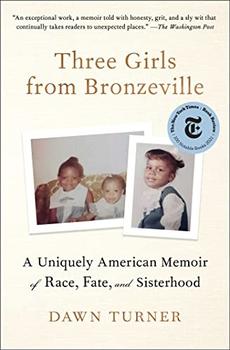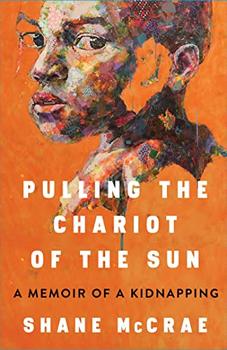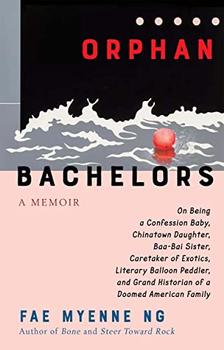Summary | Excerpt | Reviews | Beyond the book | Read-Alikes | Genres & Themes | Author Bio

A Uniquely American Memoir of Race, Fate, and Sisterhood
by Dawn TurnerFriendship is an intimate experience. Dawn Turner and Debra Trice, two black girls living the same have-not ordeal, are guardians of each other. Dawn is an excellent writer and suffocatingly smart, while Debra is beautiful, spirited and impulsive. They are inseparable and live in the Lawless Gardens apartment complex in the Bronzeville section of Chicago, a historical black neighborhood once called the Black Belt, where Southern dreamers who migrated north plopped their tired bodies in the run-down part of town.
At the age of ten, Dawn and Debra spend a lot of time at their "love spot," a roof ledge where they read and dream. Dawn wants to be a doctor. Debra says that this is what she wants too. Baby sister Kim, stubborn and rebellious, wants to be a teacher. Three Girls From Bronzeville: A Uniquely American Memoir of Race, Fate, and Sisterhood is their heartbreaking story, richly written by older sister and best friend Dawn Turner. Dawn is the story's anchor. While her resilience is the stuff of legends — the poor girl who tramples class barriers to write for the Chicago Tribune — her success isn't contagious. Debra and Kim have a tumultuous and predictable struggle, beginning in adolescence.
Take ninth grade. Debra has a knack for falling in with the wrong crowd and her family, probably at their wits' end, abruptly moves to Indiana. In a way, this feels appropriate, but what the Trices don't consider is that removing Debra from such loyal attachments as those she has with Dawn and Kim can also have negative consequences. Fourteen is a difficult age. It's not easy to find devoted friends in a new place.
Social scientists have been studying working class communities for over a century, attempting to answer questions of prediction. Can we project who will thrive and achieve and who will be dragged down the poverty gutter? While Dawn gleefully embraces every educational opportunity put before her, her saucy-mouthed sister is a disinterested student and a party girl. The death of Kim's infant son kickstarts her depression and alcohol dependency. A few hundred miles away in Indiana, Debra's struggles are unseen but present. She waitresses, then strips while on coke. Then she kills a man.
Raymond Jones is a friend of Debra's and his shooting is accidental, one of those tragic stories where a loaded gun goes off seemingly on its own. But while the circumstances are chaotic, particularly for Debra, it feels predictable. She is a substance abuser and continually makes the wrong choices. She was pushing the envelope. It was inevitable something unforeseen was going to happen. And just like that, the romantic notion that all three girls will shake off oppression is gone. Debra is arrested and handed a harsh 50-year sentence.
Because I lived in Bronzeville for the first eight years of my life, I read Turner's memoir with wide eyes, and I questioned myself. What would have become of me had I stayed? Who would I have been in this story? Ambitious Dawn? Grieving Kim? Or incarcerated Debra? I alternated my affections between the three girls as if each was their own separate tree, each leaning into the wind a little differently. I found myself looking at the title again. Despite a certain resonance and romanticism, the word "fate" felt misleading. Confused, I messaged the author to ask what she meant.
"When I talk about fate in the book," Turner wrote in an email, "[I]t's less about where we land because we were pointed toward the sun. It's more about Debra and me becoming friends and our apartments being one atop the other. It's about the choices we made, and the ones made for us." A similar thought was expressed by Joyce Carol Oates, who said in an interview with Anita Sethi of the Guardian, "I believe in particular destinies - people who are 'made for each other' and only have to discover each other."
And yet Turner's memoir isn't just about destiny and friendship. Her ability to masterfully dissect racialized Chicago, her parents' marriage and her father's flaws give the story its strength. Those who appreciate language will enjoy her examples of often comical one-liners from adults to children: "Get out from under grown folks' business." "Low-income people don't have to be low-ceilinged people." "That girl is wearing a hole in my patience." "Kind takes to kind."
In our society, we are repeatedly told that children of the working class have damaged psyches. Turner wants us to know there is more to it than that. There are girls who are strivers and then things go wrong for them. Most readers will want to save Debra and Kim from themselves and from the structures that toss them aside. Most readers will have their hearts broken. The memoir is dramatic, and often sad. It's fast-paced storytelling for which Turner deserves a lot of credit. After all, this was her life. Entertaining, teary and very redemptive, it is an excellent read. It reminds me of the advice aunties like to give when sitting around the kitchen table. Be like me. Survive it all, baby, even when it hurts.
![]() This review was originally published in The BookBrowse Review in November 2021, and has been updated for the
July 2022 edition.
Click here to go to this issue.
This review was originally published in The BookBrowse Review in November 2021, and has been updated for the
July 2022 edition.
Click here to go to this issue.

If you liked Three Girls from Bronzeville, try these:

Pulling the Chariot of the Sun
by Shane McCrae
Published 2023
An unforgettable memoir by an award-winning poet about being kidnapped from his Black father and raised by his white supremacist grandparents.

by Fae Myenne Ng
Published 2024
From the bestselling and award-winning author of novels Bone and Steer Toward Rock, Fae Myenne Ng's Orphan Bachelors is an extraordinary memoir of her beloved San Francisco's Chinatown and of a family building a life in a country bent on their exclusion
Your guide toexceptional books
BookBrowse seeks out and recommends the best in contemporary fiction and nonfiction—books that not only engage and entertain but also deepen our understanding of ourselves and the world around us.